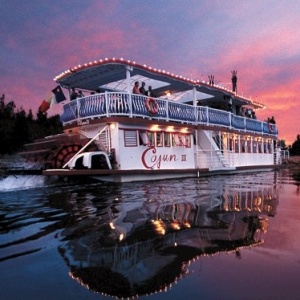Brunson And Greenstein Comment On Full Tilt Poker Fiasco
October 3, 2011 7:57 amOn the sidelines of the EPT London Main Event, poker veterans Doyle Brunson and Barry Greenstein have been giving their opinions on the whole Full Tilt Poker debacle.
In a recent interview with PokerListings, the two high-stakes pros seemed convinced that the beleaguered poker room was the victim of mismanagement rather than corruption, and drawing on his own experiences in the business world, Doyle Brunson, 78, commented:
“I know they didn’t have any checks and balances in place which is understandable to me as a gambler because every business I’ve ever been in I never made the right decisions. Poker players don’t make good businessmen.”
Full Tilt was launched back in June 2004 and before long became the second biggest online poker room in the world. By February 2010, Forbes.com estimated that the online operation generated around $500 million in annual revenues amounting to $100 million in profits. The company was also estimated to be worth around $1.63 billion.
By March of 2011, however, Full Tilt was believed to have just $60 million in assets with players’ accounts totalling roughly $390 million. Between April 2007 and April 2011, the owners of Full Tilt Poker, which included Howard Lederer and Jesus Fergusson, also paid themselves around $443 million in dividends.
Nevertheless, Barry Greenstein, 56, said he believes no sinister motivations were responsible for the quagmire Full Tilt now finds themselves in and, as he explains:
“Let’s pick a name, Ray Bitar is usually the name people pick, didn’t want to alert anyone to the problems so to keep it on the down-low [dividend payments to owners] had to continue…There’s no doubt in my mind that their thought wasn’t ‘We’re going to steal from customers’ but when Black Friday hit it came at the absolute worst time for them…I don’t think anyone believes that the initial intent was to defraud the customers, it just worked out that way in their method of fixing the problem.”
Finally, turning his attention to Howard Lederer, Doyle Brunson said that he chose to believe that he hadn’t attempted to defraud the company’s customers, with Doyle basing his opinion on his friendship and previous high regard for the ‘Poker Professor.’ As Doyle explained:
“I always believed he was a very ethical person and I have to believe that he didn’t really know what was going on.”

 Poker News
Poker News


